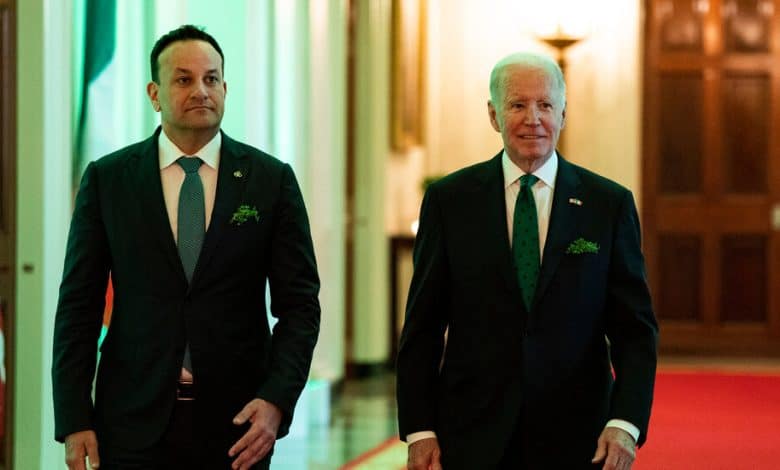As Irish Leader Visits U.S., Shamrock Camaraderie Is Strained by Gaza War

The Irish prime minister’s annual St. Patrick’s Day visit to the White House is typically a cheerful break in any American president’s schedule of stressful meetings and trips, especially for President Biden, who never misses a chance to celebrate his Irish heritage.
But the traditional shamrock camaraderie of this year’s get-together will be tempered by an undercurrent of tension stemming from the war in the Middle East. Prime Minister Leo Varadkar of Ireland has been an outspoken critic of Israel’s military assault on Hamas in response to the Oct. 7 terrorist attack and has promised to raise the issue with Mr. Biden.
“I will ask America to get involved once again in the drive for peace,” Mr. Varadkar told reporters in Boston earlier this week. In Washington on Thursday, he said he anticipated that there would be a difference of opinion over the war when he reaches the Oval Office on Friday. “There’s very strong historic support for Israel in the U.S., for lots of different reasons, but that’s not going to deflect me from saying what I feel needs to be said.”
He did not sound particularly confrontational, however. “I have to say, I believe President Biden’s heart is in the right place there,” he said. “I know he’s working with Egypt, with Qatar, with Saudi Arabia and other countries in the region, the Jordanians, to try and get Israel and Hamas to agree to a cease-fire.”
The issue has particular resonance for many in Ireland given its history of resistance to British rule, making the country one of the most supportive of the Palestinian cause in Europe. Ireland was the first European Union nation to call for a Palestinian state and the last to permit the opening of a residential Israeli embassy.
“There can be a tendency — and we see this, for example, in the street murals in Belfast — to see the conflict through the prism of Northern Ireland, where republican nationalists sympathize with Palestine and loyalists, unionists with Israel,” said Jane Ohlmeyer, a history professor at Trinity College Dublin.